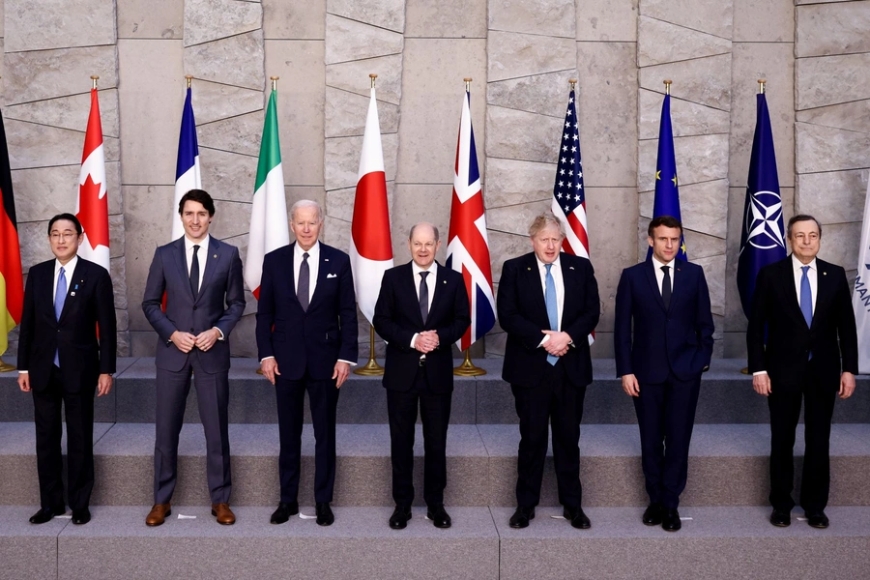Russia Condemns G7 Loans to Ukraine as ‘Fraudulent Scheme’
Supported by blocked Russian central bank assets, Britain's intention to lend Ukraine £2.26 billion ($2.5 billion) has been fiercely attacked by the Russian embassy in London. In a post on social media, the embassy said the project was a "fraudulent scheme" and charged the UK of using what it believes to be illegal financial methods.

Supported by blocked Russian central bank assets, Britain's intention to lend Ukraine £2.26 billion ($2.5 billion) has been fiercely attacked by the Russian embassy in London. In a post on social media, the embassy said the project was a "fraudulent scheme" and charged the UK of using what it believes to be illegal financial methods.
Along with the European Union, the loan is a component of a bigger $50 billion plan agreed upon in July by the Group of Seven (G7) countries: Britain, Canada, France, Germany, Italy, Japan, and the United States. The money is meant to help Ukraine restore infrastructure wrecked by the continuous conflict and support her defense capacity. John Healey, the British Defense Minister, said that the funds would be used especially for military needs, including creating advanced drones able to surpass some long-range missiles.
The statement of the Russian embassy accused the UK of using "elaborate legislative choreography" to hide what it considered as "the illegitimate nature" of the deal. This fits a more general pattern of Russian denunciations about the confiscation and use of their frozen assets. Russia's Foreign Ministry said last week of the United States' distribution of her share of the G7 loans to Ukraine, "simply robbery".
Western countries froze the in issue assets in reaction to Russia's invasion of Ukraine in February 2022. Mostly kept in European financial institutions, these monies have been a hot issue in international diplomacy. Russia has regularly denounced the actions as unlawful and unethical, while G7 countries contend the repurposing of the assets is justified to help Ukraine's sovereignty and post-war rehabilitation.
Critics of the G7 plan, notably voices from Russia, contend that funding Ukraine from frozen assets creates a risky precedent. Such behavior, they contend, subverts international financial standards and might sour confidence in world economic systems. Conversely, supporters argue that using these money is essential to offset Russia's aggressiveness and assist Ukraine in safeguarding its territory integrity.
The financial policies used by Western countries are probably going to remain a significant cause of conflict as the geopolitical tensions around Ukraine keep rising. A question that hangs over the more divided global scene is whether this strategy would bring long-term stability or aggravate already existing disputes.













































